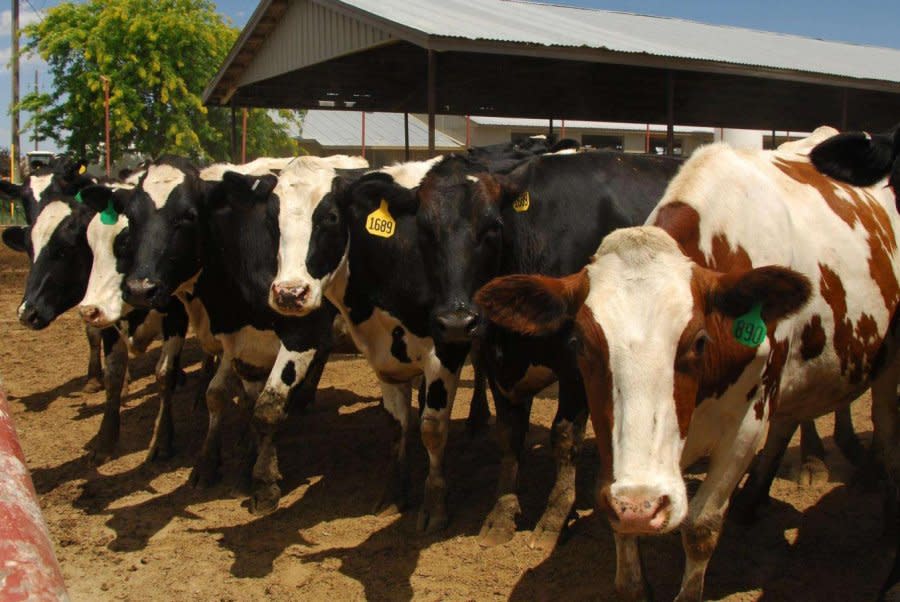USDA offers more support to help dairy producers stop H5N1 bird flu spread

May 23 (UPI) -- The U.S. Department of Agriculture Thursday expanded support to help dairy producers stop the spread of the H5N1 bird flu in cattle. There are two reported human cases so far in people who worked near cows.
The increased support includes up to $1,500 per premises for biosecurity planning and implementation and up to $2,000 per premises to help reimburse for veterinary costs associated with H5N1 testing.
The USDA will also help offset costs for influenza A testing at National Animal Health Laboratory Network labs, not to exceed $50 per shipment twice a month per premises.
The Centers for Disease Control said Wednesday a Michigan case of bird flu in a human working at a dairy farm is the second one detected. The first was in Texas.
In both cases the people infected had only eye conditions, symptoms similar to conjunctivitis.
The USDA said that since H5N1 was detected in dairy cattle in March the agency has worked to assess the prevalence of the virus and to "quickly contain the disease event."
A rule will issued soon by the USDA to make funding available to compensate eligible producers with positive herds who experience a loss of milk production.
"While dairy cows that have been infected with H5N1 generally recover well, and there is little mortality associated with the disease, it does dramatically limit milk production, causing economic losses for producers with affected premises," the USDA said in a statement.
According to the USDA the federal government is addressing the bird flu situation with urgency and through a whole-of-government approach.
In April the USDA said that while cases among people in direct contact with animals are possible, no changes to the H5N1 virus have been found that would make it transmissible to humans and between people.

